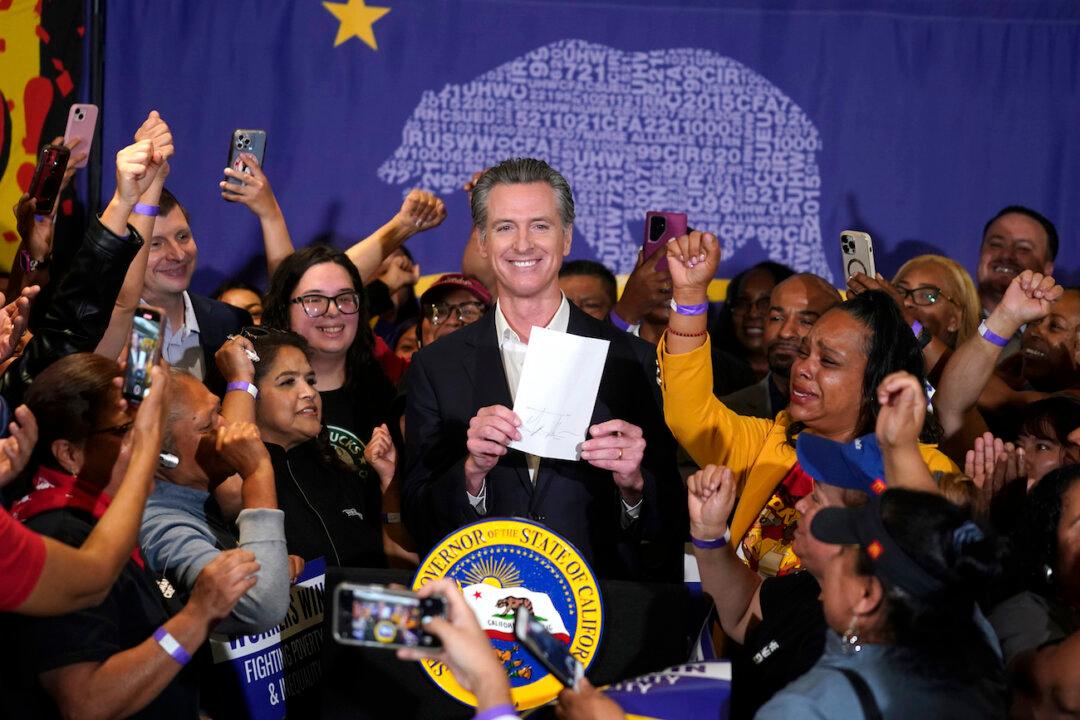California’s fast-food workers will see a wage boost to $20 per hour due to a legislation signed into law by Gov. Gavin Newsom on Thursday.
The wage increase will be effective from April 1, 2024. It will apply to all employees who work at restaurants that have at least 60 locations across the country. However, restaurants that make and sell their own bread don’t have to abide by the new minimum wage.




